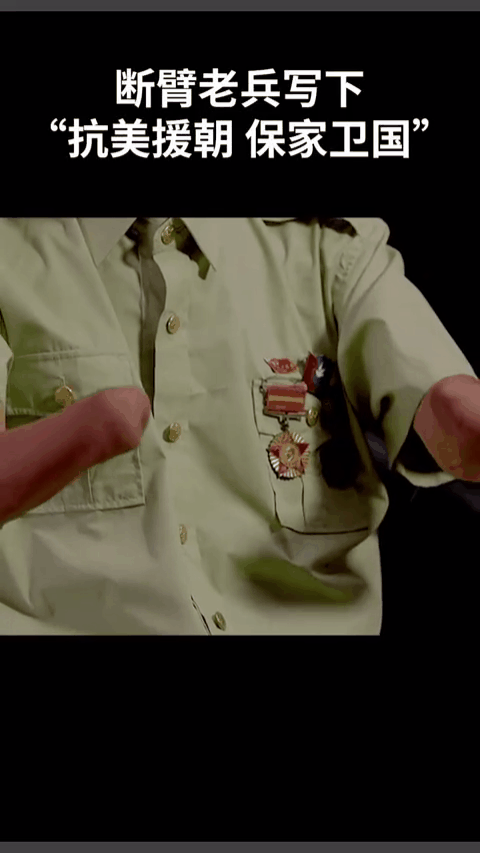
Zhou Quandi writes calligraphy. /CCTV
Zhou Quandi writes calligraphy. /CCTV
A video of a veteran amputee doing calligraphy is tugging at the heartstrings of many Chinese netizens. In it, the 87-year-old Zhou Quandi, who lost both his hands, writes “抗美援朝, 保家卫国” (meaning "Resist the U.S. aggression and aid Korea, to defend my homeland") to commemorate the 70th anniversary of when the Chinese People's Volunteer Army (PVA) joined the War to Resist U.S. Aggression.
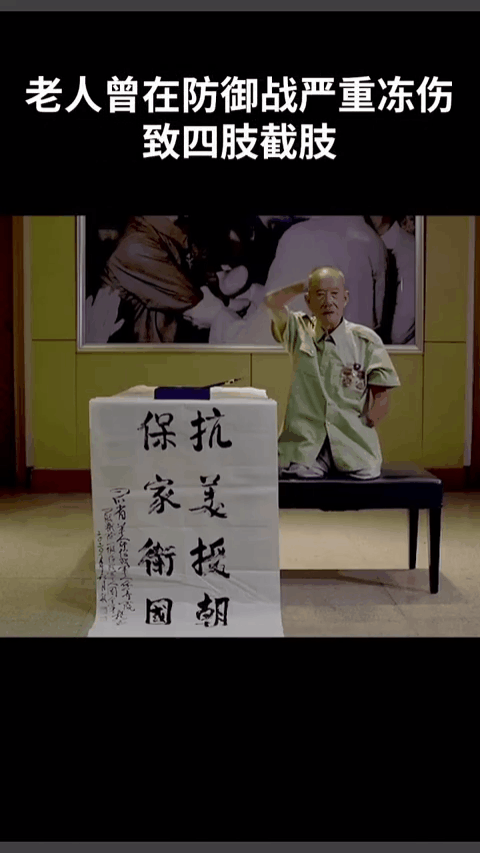
Zhou Quandi makes a military salute. /CCTV
Zhou Quandi makes a military salute. /CCTV
In June 1950, the Korean War broke out after the Korean Peninsula was split into north and south. The United States sent troops and dispatched ships and aircraft to meddle in the Sino-Korean border. Facing American threats, the newly founded People's Republic of China decided in October to participate in the war to defend its national security and help its neighbor, calling it the War to Resist U.S. Aggression and Aid Korea.
Hundreds of thousands of young people in China joined the war to defend their homeland, including then 17-year-old Zhou.
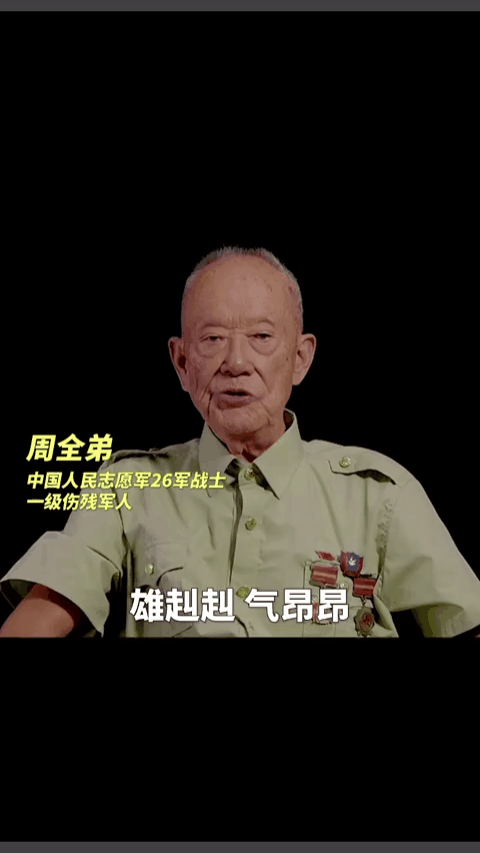
Zhou Quandi sings the March of the People's Volunteers Army. /CCTV
Zhou Quandi sings the March of the People's Volunteers Army. /CCTV
According to Zhou's memories, Korea suffered unprecedented cold weather that year. PVA soldiers braved temperatures below 30 degrees Celsius, eating potatoes and drinking snow water to quench their thirst while carrying out combat missions in the Hwangchoryong area in Korea.
"We lay on the snow for three days. On the last night, when we finally started to fight the enemy, I couldn't get up anymore. My feet and hands were numb," said Zhou.
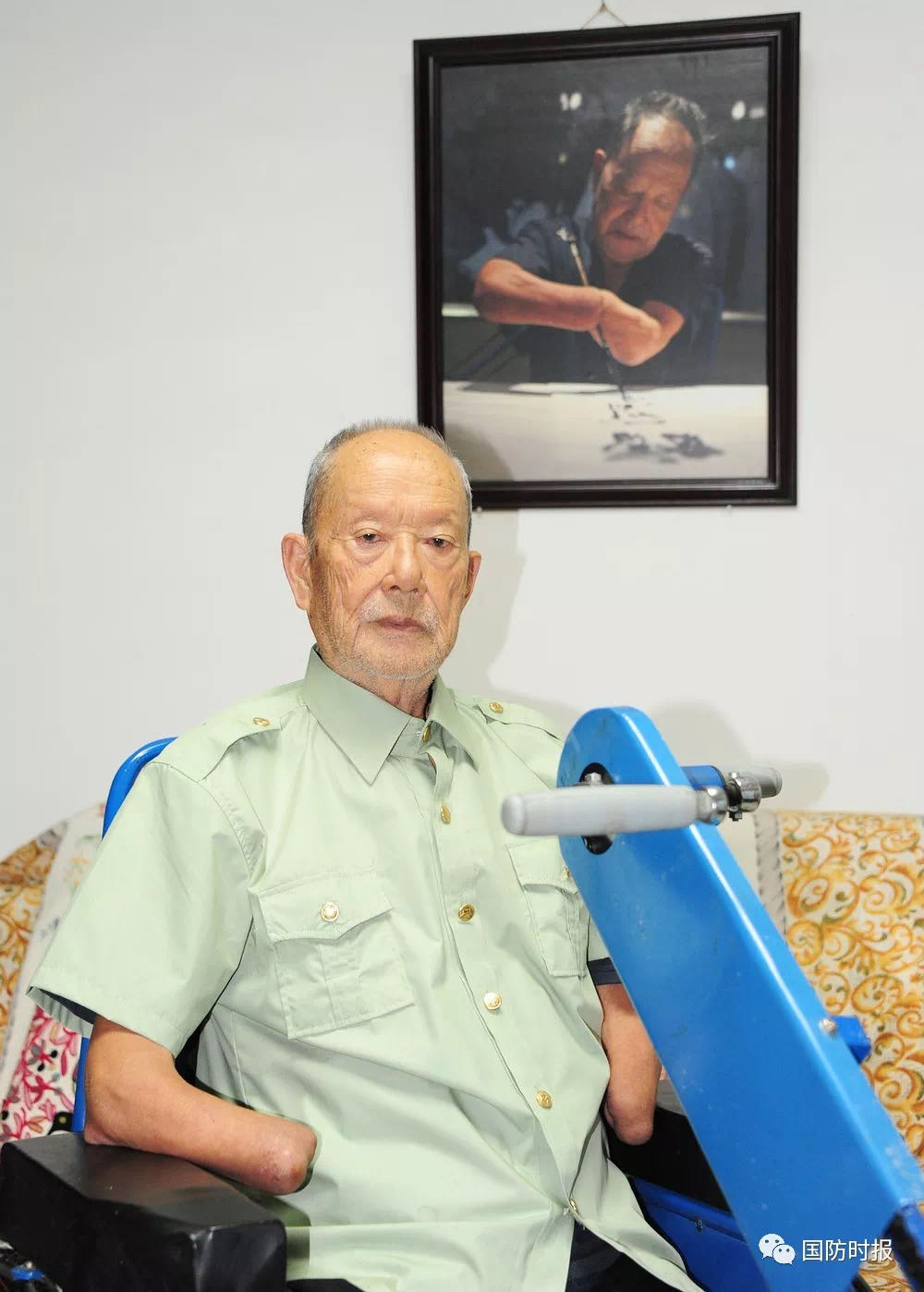
Zhou Quandi in his home. /National Defense News
Zhou Quandi in his home. /National Defense News
After the battle, other PVA soldiers found Zhou unconscious in the snow and already suffering from frostbite. If he did not undergo surgery immediately, his life would be in danger. Due to the lack of anesthetics, the doctor wrapped his limbs with ice cubes and performed the amputation while he was in a coma with a high fever.
After the surgery, the doctor said, "If he doesn't wake up within seven days, he will die."
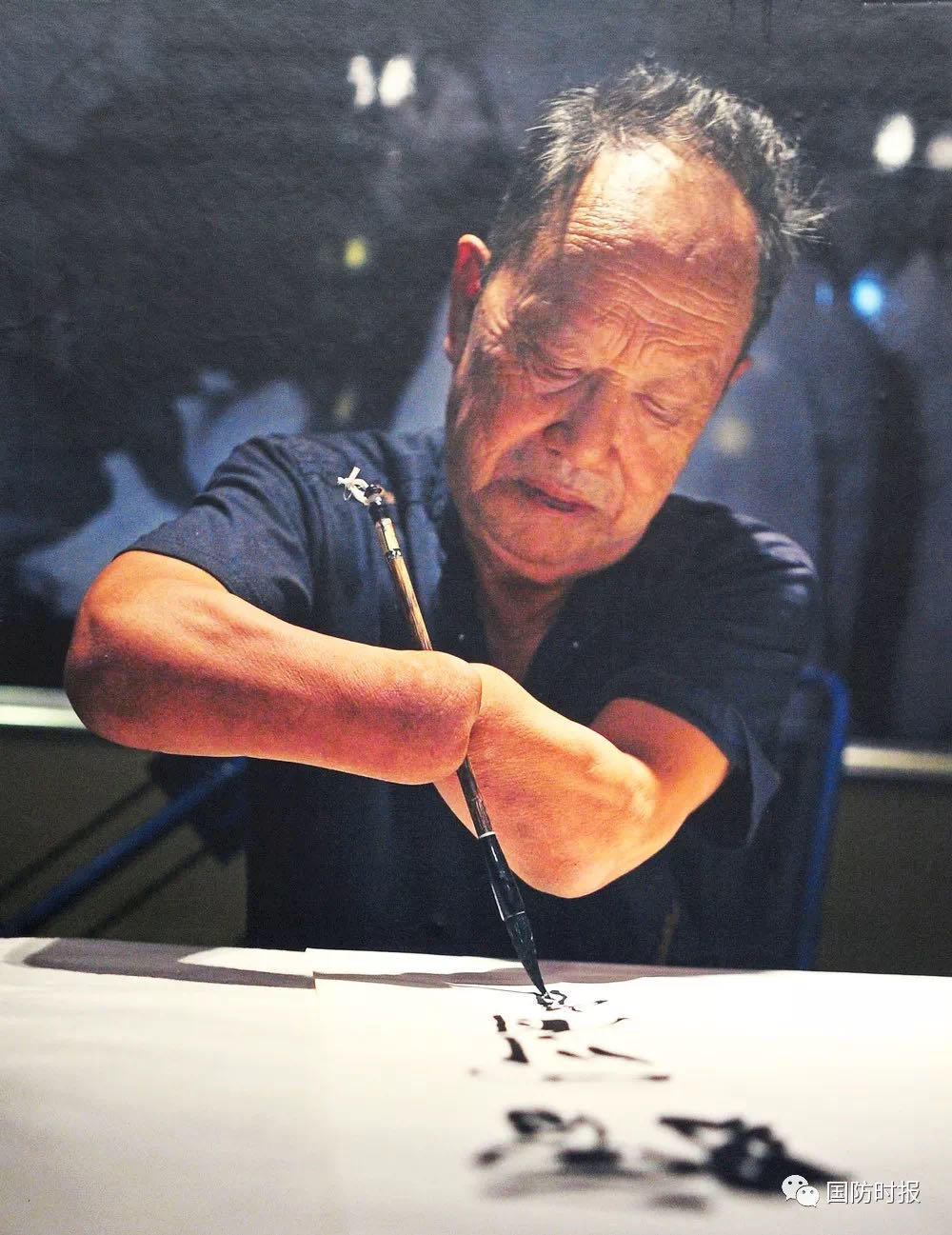
Zhou Quandi writes calligraphy. /National Defense News
Zhou Quandi writes calligraphy. /National Defense News
Zhou's strength helped him survive. Although he lost both his hands and legs, he didn't give up. After returning to China, he took care of his basic needs and also found the will power to practice calligraphy despite inherent difficulties.
Over the past decades, Zhou completed nearly 2,000 calligraphy pieces and won many awards in various calligraphy competitions.
Zhou's patriotism and perseverance have moved and inspired many Chinese netizens.
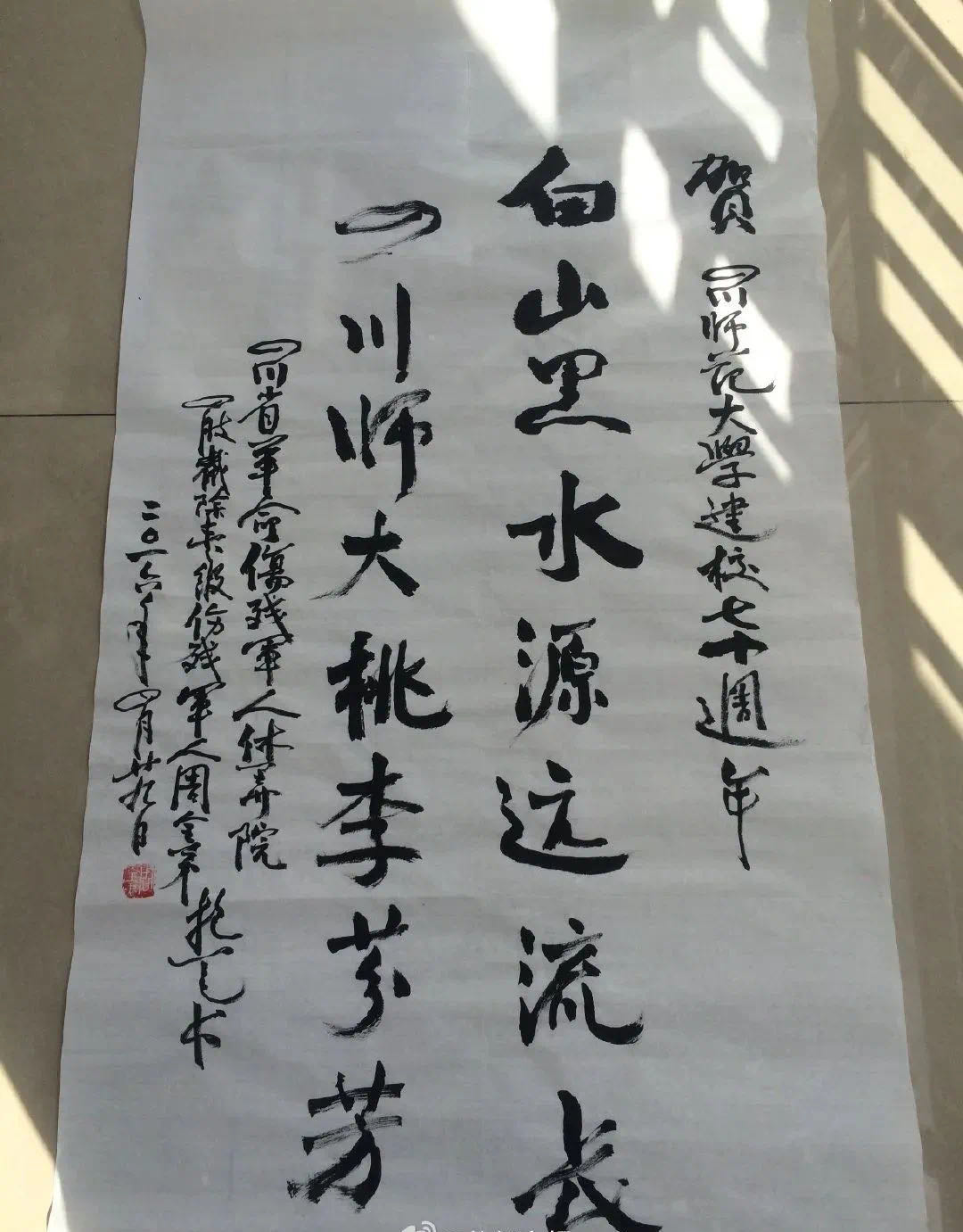
One of Zhou Quandi's calligraphy pieces. /CCTV
One of Zhou Quandi's calligraphy pieces. /CCTV